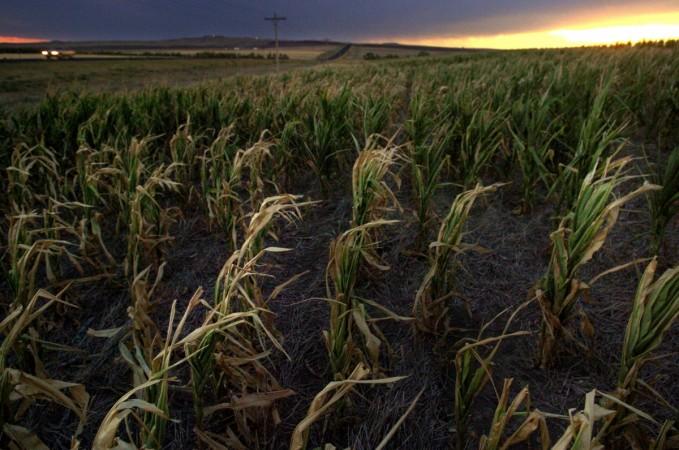
A team of international researchers has developed a genetically engineered tobacco crop that consumes significantly less water than its non-modified peers.
The method involves boosting the level of a protein in the plant that regulates the opening and closing of the stomata – microscopic pores in the leaf that let in carbon dioxide and allow water to escape.
The scientists involved were able to reduce the amount of water consumed by the test crop by a quarter without compromising yield.
The research is published in the journal Nature Communications.
"This is a major breakthrough," said Stephen Long, professor of plant biology and crop sciences at the University of Illinois, Urbana-Champaign.
To achieve a more water efficient tobacco crop, researchers increased the level of a protein called Photosystem II Subunit S (PsbS) to trick the tobacco plant into thinking that it did not have enough light to photosynthesize.
This causes the stomata to partially close, leading to less water escaping by the process of transpiration.
Carbon dioxide levels in the atmosphere have increased by a quarter over the past 70 years, so a plant can amass enough CO2 for photosynthesis without having to fully opening its stomata.
"Evolution has not kept pace with this rapid change, so scientists have given it a helping hand," said Long.
The hope is that this method will lead to more water efficient farming methods in a future where there is greater climate instability.
"Crop yields have steadily improved over the past 60 years, but the amount of water required to produce one ton of grain remains unchanged – which led most to assume that this factor could not change," Long added.
"Proving that our theory works in practice should open the door to much more research and development to achieve this all-important goal for the future."
Researchers now plan to use the technique on other food crops and test its efficiency in real-world scenarios.
"Making crop plants more water-use efficient is arguably the greatest challenge for current and future plant scientists," said Johannes Kromdijk, a co-author of the study.
"Our results show that increased PsbS expression allows crop plants to be more conservative with water use, which we think will help to better distribute available water resources over the duration of the growing season and keep the crop more productive during dry spells."










